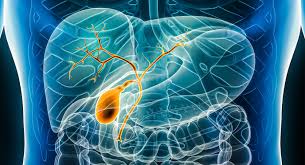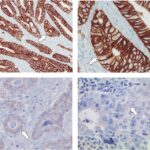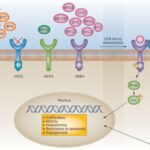HER2 positive biliary tract malignancy is a rare but aggressive form of cancer that affects the bile ducts, gallbladder, and ampulla of Vater. Understanding its molecular profile, diagnosis, and treatment options is crucial for improved patient outcomes.

Understanding HER2 Positive Biliary Tract Cancer
HER2 (Human Epidermal Growth Factor Receptor 2) overexpression is found in a subset of biliary tract cancers. This receptor is a transmembrane protein involved in cell growth and differentiation. Overexpression or gene amplification of HER2 leads to uncontrolled cellular proliferation, driving malignancy progression.
Types of Biliary Tract Malignancies
- Cholangiocarcinoma (intrahepatic, perihilar, and distal)
- Gallbladder Cancer
- Ampulla of Vater Cancer
Molecular Pathogenesis of HER2 in Biliary Cancers
HER2 overexpression occurs in approximately 5-20% of biliary tract malignancies. The oncogenic role of HER2 in these cancers resembles its function in breast and gastric cancers, where it drives tumorigenesis via uncontrolled cellular signaling.
Diagnosis of HER2 Positive Biliary Tract Malignancy
Accurate diagnosis is critical for identifying HER2 positive cases.
Diagnostic Techniques
- Immunohistochemistry (IHC): Detects HER2 protein expression levels.
- Fluorescence In Situ Hybridization (FISH): Identifies HER2 gene amplification.
- Next-Generation Sequencing (NGS): Provides comprehensive genomic profiling.
Treatment Options for HER2 Positive Biliary Tract Malignancy
1. Targeted Therapy
- Trastuzumab: A monoclonal antibody targeting HER2.
- Pertuzumab: Often combined with trastuzumab for dual HER2 blockade.
- Tucatinib: An oral HER2-specific tyrosine kinase inhibitor.
2. Chemotherapy
Combining HER2-targeted therapies with traditional chemotherapy agents like gemcitabine and cisplatin improves overall survival rates.
3. Immunotherapy
Emerging studies indicate promising results in combining checkpoint inhibitors with HER2-targeted therapies for enhanced immune response.
4. Surgical Intervention
In early-stage localized tumors, surgical resection combined with adjuvant therapy offers the best curative potential.
5. Radiation Therapy
For patients with inoperable or metastatic disease, radiation therapy aids in controlling tumor growth and reducing symptoms.
Prognosis and Survival Rates
HER2 positive biliary tract malignancies tend to be more aggressive than their HER2-negative counterparts. However, targeted therapies have significantly improved outcomes, with median survival rates extending beyond 12-18 months in some cases.
Future Directions and Research
Ongoing clinical trials are exploring novel combinations of HER2 inhibitors, immunotherapy agents, and precision medicine strategies. Personalized treatment plans based on molecular profiling are expected to further enhance survival outcomes.
HER2 positive biliary tract malignancy poses significant treatment challenges. However, advancements in targeted therapies, improved diagnostic techniques, and personalized treatment approaches are improving patient prognosis. Continuous research and clinical trials remain crucial to expanding therapeutic options and enhancing survival outcomes.

